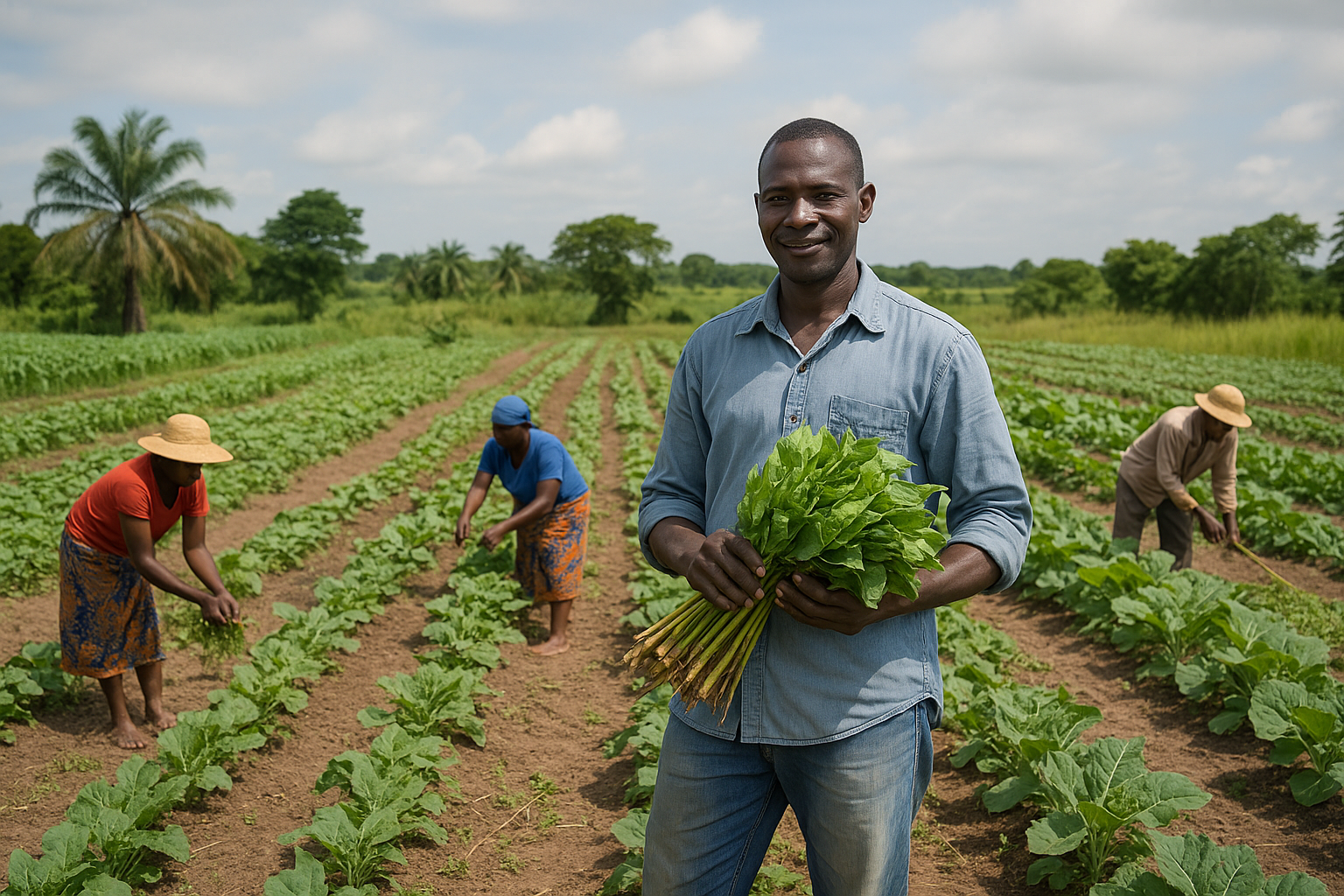FAO Workshop Catalyzes Value Chain Innovation for Southern Africa's Agri-Food Future
One of the core focuses of the workshop was the integration of digital technologies and artificial intelligence (AI) in shaping the future of agri-food systems.

- Country:
- South Africa
From 7 to 9 July 2025, the Food and Agriculture Organization of the United Nations (FAO), through its Subregional Office for Southern Africa (SFS), convened a high-impact regional training workshop in Pretoria, focusing on transformative approaches to value chain development. Organized under the European Union-funded Support Towards Operationalization of the SADC Regional Agricultural Policy – Phase II (STOSAR II), the workshop brought together 55 agricultural experts and policymakers from across the Southern African Development Community (SADC), representing 16 Member States.
Held in collaboration with the SADC Secretariat and strategic regional partners including FANRPAN, AUDA-NEPAD, and SACAU, the two-and-a-half-day session marks a turning point for integrated agricultural investment planning in Southern Africa. It prioritized evidence-based, inclusive, and digitally enabled value chain development to catalyze agricultural transformation and sustainability.
Laying the Groundwork: From Strategy to Execution
In his opening remarks, Dr Lewis Hove, FAO’s Resilience Team Leader for Southern Africa, speaking on behalf of Dr Patrice Talla, FAO Subregional Coordinator for Southern Africa, hailed the event as a defining step forward for the STOSAR II initiative.
“Today’s workshop marks a significant milestone for STOSAR II. It is one of the first major regional activities under the second phase of the project, and it brings to life a key new focus on Value Chains,” said Dr Hove. “This component reflects our collective ambition to turn data and strategies into real improvements along agricultural value chains, leaving no one behind.”
The workshop emphasized transforming technical data and policy objectives into on-the-ground investment plans, enabling SADC nations to align their National Agricultural Investment Plans (NAIPs) and Sector Development Plan Agreements (SDPAs) with regional food security goals.
Tools for Transformation: Technology and Inclusion at the Forefront
One of the core focuses of the workshop was the integration of digital technologies and artificial intelligence (AI) in shaping the future of agri-food systems. Participants were introduced to powerful, hands-on tools that support inclusive investment design and decision-making:
-
FAO’s EX-ACT (Ex-Ante Carbon-balance Tool): The only greenhouse gas accounting tool that spans the entire agricultural sector, aiding in climate-smart planning and emissions tracking.
-
RuralInvest Toolkit: A decision-support platform to help local stakeholders, farmers, and cooperatives develop sustainable and bankable business proposals.
-
CSIR Technologies: The Council for Scientific and Industrial Research demonstrated cutting-edge ICT applications such as remote sensing, earth observation, and soil health diagnostics, which are vital for yield prediction and land suitability analysis.
Beyond digital tools, the workshop also promoted inclusive aggregation systems—a strategy designed to connect smallholder farmers to structured markets while reducing transaction costs and scaling investment opportunities.
Regional Synergies and Peer Learning
The event was also a strategic convening for reinforcing the SADC Community of Practice on Agribusiness, Investment, and Trade, which aims to foster regional integration and collective learning. Country delegates shared lessons from national experiences, including bottlenecks and innovations influencing value chain performance and rural livelihoods.
Dr Manyewu Mutamba, Head of Agriculture at AUDA-NEPAD, emphasized the strategic alignment of this initiative with the CAADP Kampala Declaration.
“This intervention on value chains is both timely and strategic. It directly supports the implementation of the CAADP Declaration on Building Resilient and Sustainable Agrifood Systems by focusing on agro-industrialization, trade, and increased investment in agrifood systems,” Dr Mutamba said.
By aligning with CAADP and other continental frameworks, the workshop underscored the importance of regional coherence in transforming food systems and improving livelihoods.
Toward a Resilient and Investable Future
The training sessions offered more than technical capacity—they provided a vision for sustainable transformation through value chains as engines of inclusive growth. The forum helped chart a collective way forward, one that is anchored in climate resilience, market access, and investment-readiness, especially for marginalized groups including women and youth.
The STOSAR II Project, with support from the European Union, is now poised to operationalize the gains from this training across SADC countries. These gains will feed directly into national agricultural priorities while amplifying regional cooperation.
“This is more than a workshop,” one participant noted. “It’s a reawakening of how we plan, fund, and execute value chains that actually deliver for people and planet.”
Sustained Collaboration for Systemic Change
As the region grapples with the dual challenges of climate vulnerability and market fragmentation, the workshop provided hope and tools for agricultural actors to pivot toward scalable solutions. Strengthened partnerships, robust policy frameworks, and digital innovation were cited as the triad needed to foster resilient, food-secure communities.
With training concluded, participants left Pretoria not only with new knowledge but also renewed urgency to reshape food systems—through investment, technology, and inclusive design.
The next phase will involve country-level rollouts of integrated planning tools, sustained peer learning via SADC’s Community of Practice, and coordinated donor alignment to ensure that value chains serve as foundations of transformation across Southern Africa.









